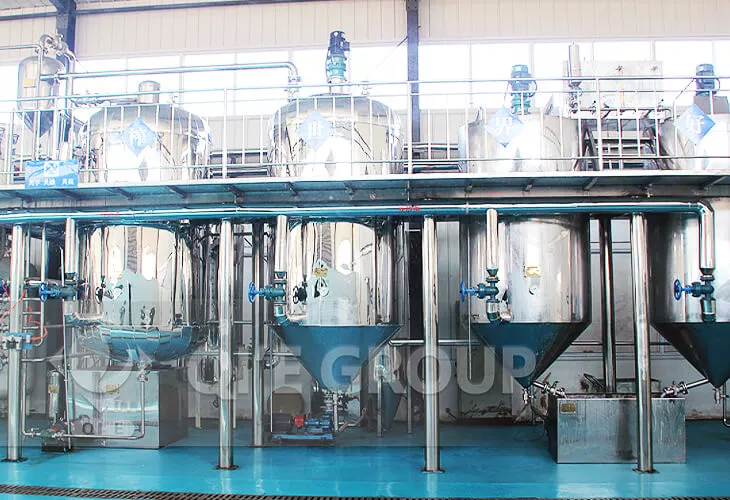
In the current industrial landscape, energy efficiency and environmental protection have become central concerns for manufacturers worldwide. As global demand for sustainable production practices grows, the need for advanced palm oil refining equipment has never been more critical. This article delves into the key technologies and process advantages of energy-saving and environmentally friendly palm oil refining systems, offering insights into how they enhance productivity while reducing environmental impact.

The energy-saving and environmentally friendly palm oil refining equipment is composed of two major parts: the leaching process and the refining procedures. The leaching process ensures efficient extraction of crude palm oil, while the refining stage removes impurities and improves oil quality. These processes are designed to maximize output while maintaining high purity levels, making them ideal for large-scale operations.
The refining system includes steps such as degumming, neutralization, bleaching, and deodorization. Each step is optimized for efficiency and minimal resource consumption. For instance, the degumming process effectively removes phospholipids, while the bleaching stage uses activated carbon to eliminate color impurities. These features ensure that the final product meets international quality standards.
A standout feature of this equipment is its fully automated PLC (Programmable Logic Controller) control system. This technology allows for precise monitoring and regulation of all operational parameters, significantly improving process stability and reducing human error. The system can be programmed to adjust temperature, pressure, and flow rates in real time, ensuring optimal performance under varying conditions.
By integrating with modern data acquisition systems, the PLC control system enhances operational transparency and enables remote monitoring. This not only simplifies maintenance but also reduces downtime, leading to significant cost savings over time.

One of the most compelling benefits of this equipment is its exceptional energy efficiency. According to field data, the steam consumption per ton of oil is below 300 kilograms, and the power consumption rate is only 22 kilowatt-hours. These figures represent a significant improvement over traditional refining systems, which often consume more energy and generate higher waste.
Additionally, the equipment’s design minimizes water usage and reduces emissions, contributing to a lower carbon footprint. These features align with global sustainability goals and help companies meet regulatory requirements without compromising on productivity.
Several case studies demonstrate the effectiveness of this equipment in real-world applications. In one example, a palm oil processing plant reported a 25% reduction in energy costs and a 15% increase in production efficiency after upgrading to the new system. Another facility noted a 30% decrease in maintenance expenses due to the system’s reliability and ease of operation.
These results highlight the equipment’s ability to deliver both economic and environmental benefits, making it a valuable investment for any company looking to stay competitive in the global market.
The energy-saving and environmentally friendly palm oil refining equipment represents a significant advancement in the industry. By combining cutting-edge technology with sustainable practices, it offers a reliable solution for companies seeking to reduce costs, improve efficiency, and minimize their environmental impact.
For businesses aiming to achieve long-term growth and compliance with global standards, this equipment is an essential asset. Explore our comprehensive range of palm oil processing solutions today and take the first step toward a greener, more profitable future.
Discover More About Our Energy-Saving Solutions
